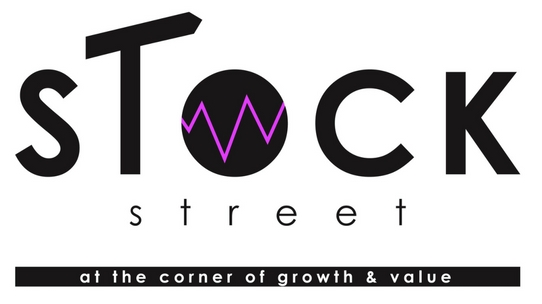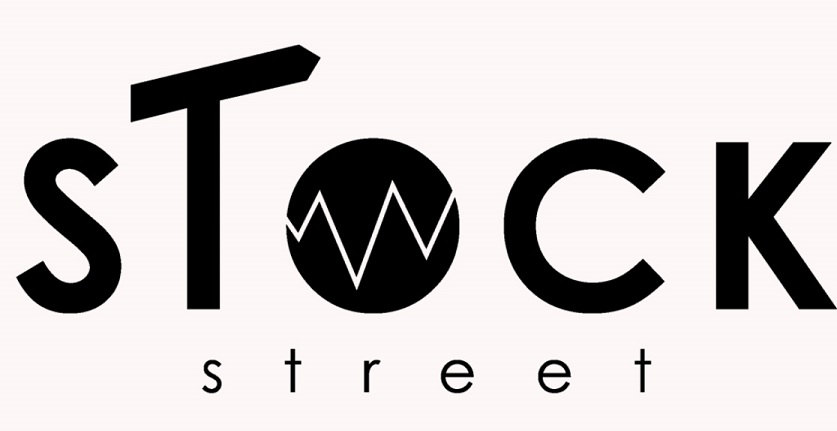What are Stock Street’s views on budgeting? Budgets are stupid, who needs them, they are a waste of time, a mere pain in the arse. Just kidding! These are all opinions Stock Street does NOT have on budgeting. Budgeting is extremely important. I have learned this personally, and there are many tools available to you to help with your budgeting these days. I will tell you a little personal story about budgeting with my humble financial services background, then offer some of my views on how to budget using percentages and spending rates.
My budget
This may surprise you, but I didn’t have a budget for a long time. I told people I didn’t need a budget because I had my necessary savings amount in my head, and I thought I could keep track of how much I saved each week. Guess what, I would wake up some mornings, look at my checking account, and realize it bounced around more than Shakira’s hips. About five years into working in financial services, I had enough of the madness and decided to stop it dead in its tracks. I figured if Shakira’s hips don’t lie, I needed to quit lying to myself. It was time to create a hardcore budget.
Here is something to cheer you up. You’re welcome :)
I went into budget insanity one weekend. I woke up on Saturday morning, I made bacon, eggs, toast, a giant cup of coffee, and I started creating my budget. I think I actually blacked out and came too on Sunday night. I am not kidding when I say that besides eating and sleeping, I worked on this budget the whole weekend.
When she was done, I had the most magnificent piece of work I had created in some time. Sunday night, I laid my head down, and had sweet dreams of Shakira as the financial madness melted away.
My budget projected my cash account’s weekly balance two years into the future. This is really overkill for most people; you don’t need to get as detailed as I did with your cash accounts. My budget also told me the exact amount of money I would have on any day of the week I wanted. The graph I created to watch visually how my savings and checking account would fluctuate made me giggle like a little girl when I first saw it.
I created this budget about four years ago, and I still use it; it is still as beautiful as it was the day I created her. Of course I have had to increase or decrease certain areas as they change, but my budget is as accurate as humanly possible.
But you don’t need to do what I did to get your budget going, these days you can use software to track your spending. If you are the type who will spend a weekend creating your own budget in an excel worksheet, do it! It will be more personal to you and likely better than the software. If you are not the type to do that, signup for some budgeting software and melt away the financial stress. I promise you the night you do this, you will sleep better.
Mint.com is a great FREE tool to budget. You can link your accounts to Mint and it will track your spending. It will tell you how much you spend on gas, food, clothing, etc… This way you can get an idea of your spending habits.
Here is a link to check out: https://www.mint.com/
By the way you can always subscribe to the Stock Street mailing list and receive a free excel budget spreadsheet!
How much you should be spending
Quick quiz question – what percentage of your income after taxes do you spend each year? Couldn’t answer that? How about the percentage of your gross income you spend each year? Don’t know it off the top of your head? Maybe you have a spreadsheet with your budget and you can go look it up? Don’t have an answer to any of these? You should get to work and create a budget for yourself!
How much you should spend – preferred Answer
In a perfect world, you would spend no more than 80% of your net income (your income after taxes). And for you math geniuses, that means you don’t spend 20% of your income after taxes. Guess where that 20% you don’t spend goes? It goes into savings! Whooo! Yeah savings!
Example:
If you bring in an annual income of $100,000 and pay 20% in taxes and your spending rate is 80% of net income it would look like this:
Annual income = $100,000
Tax rate = 20%
Spending rate = 80%
Taxes = $100,000 X 20% = $20,000
Net income after taxes = $100,000 – $20,000 = $80,000
After tax spending for your budget = $80,000 X 80% = $64,000
$64,000 = the amount you can spend, which is 80% of your net income (your income net of taxes)
How do I figure out my net income?

Sep 1: Add all of your income you expect for the year. This includes both earned and unearned income.
Earned income: wages, salaries, tips or net earnings from self-employment.
Unearned income: interest, dividend income capital gains etc…
Step 2: Open your most recent tax return and look for the amount you paid in taxes. If you think you will pay more or less money this year for taxes, you can adjust this number.
Step 3: Subtract your income in step 1 from your tax in step 2. This will be your net income after taxes.
Step 4: Look at your calculator, when you see the amount of money you should be spending compared to what you are actually spending, you more than likely want to puke then you will subsequently pass out. When you come too while you are lying on that cold, tile, kitchen floor, remember not to panic; you can get to where you need to be with some time, and some effort.
How much should you spend – lazy Answer
If you are too lazy to go find your tax return so you can calculate your net income after taxes, you can go ahead and use your gross income. If we use our $100,000 income earning household from before, you should spend no more than 64% of your gross income.
Example:
Annual income = $100,000
Spending rate = 64%
Spending for your budget = $100,000 X 64% = $64,000
$64,000 = the same amount of income you could spend in the example above.
When you use gross income, you run into some problems.
If you make an annual income of $50,000 instead of $100,000, and pay $9,000 in taxes instead of $20,000 in taxes, it will look like this using the 64% spending rate we used above:
Annual gross income = $50,000
Spending rate = 64%
Spending for your budget = $50,000 X 64% = $27,470
The Problem
Using the same 64% gross income as we did for the $100,000 income above will result in a lower spending amount than using net income. If we use the preferred 80% of net income method, it will look like this:
Taxes = $50,000 X 15% = $7,500
Net income after taxes = $50,000 – $7,500 = $42,500
After tax spending for your budget = $42,500 X 80% = $34,00
As you can see, different tax rates will have a significant impact on these numbers, which is why I like to use the general rule of 80% of after-tax income instead of a percentage of gross income.

Start Small
The majority of people who read this will not be spending less than 80% of their net income. If you are, congratulations! If you are not, do not worry because you can start small and set goals to hit in the future. Rome wasn’t built in a day.
- If you are spending 95% of your net income, try to get to 90-93% by next year.
- If you are spending 90%, try to get to 84-85% of your net income by next year
Each year, try and decrease that number if your spending is above the 80%.
Don’t expect to get to 80% overnight. Expect it to be a journey to get to 80%.
If I spend less than 80% of my net income do I need to spend more?
Uhhhh, no, ya big dummy! If you spend less than 80% of your net income, you, my friend, are a Rockstar. Keep it up! You are on the fast track to financial independence, so keep going and in the end, you will be so much better off than your peers. I started in financial services in 2007 and I’ve seen a whole lot of people’s finances; you are in the minority, and it is a beautiful thing.
Popular Expenses
The percentage of your income you will spend for each budget line item will vary depending on where you live, your family size, and other factors. The most important thing to remember is that you have 80% of your net after-tax income to spend. Below are general rules; if you live in a place like New York City for example, these will obviously need to be tweaked.
Stock Street’s rules for individual expenses
Stock Street’s has three rules when It comes to individual expenses
Rule 1:
Home
- Spend no more than 30% of your income after taxes.
Example: You make $100,000. $20,000 goes to taxes. You have $80,000 left after taxes. Only 30% of the $80,000 should go towards your mortgage payment. This equals $24,000 per year, $2,000 per month.
Rule 2:
Car(s) (Including Insurance)
- Spend no more than 10% of your monthly net income after taxes on your monthly payments.
- In terms of total car(s) cost if you purchase with cash, it should be less than 30% of your net income after taxes.
Example: You make $100,000. $20,000 goes to taxes. You have $80,000 left after taxes. Only 10% of the $80,000 should go towards your car(s) + insurance. This equals $8,000 per year, $667 per month.
Rule 3:
Everything Else
The amount left over after your home and your car can be spent towards everything else, not to exceed 80% of your net after tax income.
- This includes: Utilities, food, clothing, donations, entertainment, medical expenses, insurance, debt, travel, hobbies, daycare, dance lessons, soccer leagues, scotch, health clubs, Starbucks, shoes, rubber bands, beach chairs, earrings, and a whole lot more…
Example: You make $100,000. $20,000 goes to taxes. You have $80,000 left after taxes. If you spend 30% on your home ($24,000/year) and 10% on your car(s) + insurance ($8,000/year), 20% will go to savings ($16,000/year). This leaves you $32,000 to spend on everything other than your home and car ($2,667/month).
Does this sound like an organizational mess to you? Are you overwhelmed with the idea of creating a budget to track all of these costs? Have no fear, if you sign up for our Stock Street mailing list, you will receive an excel budget spreadsheet emailed to you so you can manage your tangled financial clutter.
You can sign up here:
Does anyone spend less than 80% of their net income after taxes? Does anyone disagree with Stock Street’s views on budgeting?
Photo Credit – Flickr – Suran 2007 – Shakira having the time of her life
















I loved this blog! I am so excited about saving money this year and this was the reminder I neede to set a strict budget!! I can’t wait to get started!
Great, Mandy! Glad this was a reminder for you. Get that budget going and I am sure you will be happy when it is done!